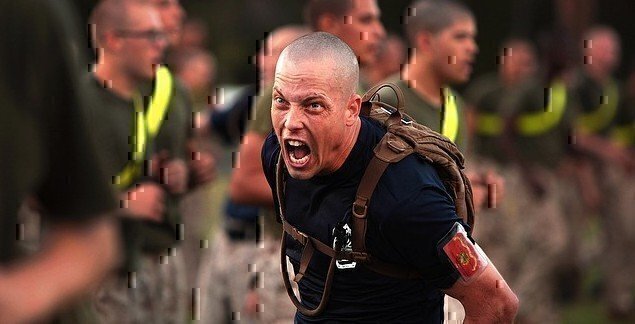Veterans have a wealth of skills and experiences to offer as educators. However, teaching students and instructing troops can be different worlds. We have to understand where military tactics and strategies work and where to hold back. So really, how do you bring your military experience into the classroom?
No, you’re not supposed to make your students do 200 push-ups.
No, you’re not allowed to make them stand at attention.
Briefings on personal hygiene are generally frowned upon.
Bark, but do so strategically.
A lot of my students tell me that I’m so nice that they can’t imagine me angry. Often this makes me smile and laugh a little on the inside. There’s a time to take out the military dog; that’s usually after the third time I’ve asked for a student to stop texting in class.
In the end, bring your skills. But when it comes to military experience in the classroom, remember these aren’t new recruits to be whipped into shape. They have to figure out how to whip themselves.
You don’t need to dominate the classroom or your students’ success.
We are accustomed to discipline and we have a tendency to approach any group situation with rules. Worse, we expect others to adhere to those rules. Oh no, my fellow perfectionist veteran, this is not the case when it comes to teaching. In fact, take all your expectations of order and crumble it up like your final check-out sheet and then go play trashketball with it.
Instead, focus on using your military experience in the classroom by … wait for it … just teaching your students. Also, give your students the opportunity to control their own fates. Hopefully that means their success, but sometimes it means their failure. There are lessons in both, if they are willing to learn them.
You are the captain of your own ship.
While we are used to having a chain of command and knowing our place within that system, you will find that your classroom is more like a ship within a fleet. And guess what? You’re the sole navigator. It’s OK. The goals are set, but you also get to dream up your own map.
Be a mentor.
Pull out all that great mentoring experience you learned while in the military. If you end up teaching high school or college, many students in your classes will be in a similar age group as new recruits.
Think about yourself when you first joined with stars and stripes in your eyes. Now emulate some of the best mentorship qualities you saw while you were active duty. These will serve you well.
Many young people need more than just knowledge on a particular topic. They often need you to advise, care, and encourage them. And sometimes some tough love, too.
Lead from the front.
Teachers don’t know what happens when their students leave the classroom. We all have clues, and maybe even assumptions, but we can’t know for sure.
I’ve had students who are holding down several jobs to stay in school or support their families. Yes, these students are often the ones falling asleep because they are putting 110 percent into everything. Talk to them.
You know about the challenges you’ve faced in the military. You’ve probably developed strategies and coping mechanisms for those challenges.
Bring that military experience into the classroom, offer advice, listen, and give them a chance to succeed. I’m not saying give them a free pass through the class, but if it costs you next to nothing to let them leave five minutes early once a week to get to their job, it might just mean all the difference to them.
Heck, it might enable them to stay in school.
Practical tip.
Students falling asleep? Don’t take personal offense; not everyone is going to be as excited or as interested as you are in the subject you teach. Use that military experience in the classroom and give students the option to stand up in the back of class.
Most non-military have never thought of this idea, and I’ve found that many students appreciate being offered the option. I usually communicate that I don’t mean it as a stigma but offer the idea as a strategy for success.
Veterans have so much to offer in the classroom, and while none of it involves push-ups, it does involve our training and perspectives. Let’s enrich these students and get them on the track to success.
OK, drill sergeant, let’s go educate the next generation.






